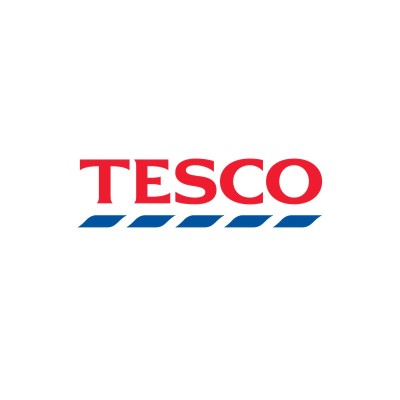Tesco's Trolley Wars: A Battle for Market Dominance
April 10, 2025, 10:51 pm
The grocery landscape in the UK is a battlefield. Tesco, the titan of supermarkets, has just reported profits that exceeded expectations. Yet, the victory feels hollow. The specter of “trolley wars” looms large, casting a shadow over future profits. The competition is fierce, and the stakes are high.
Tesco’s adjusted operating profit climbed to £3.13 billion, a 10.9% increase. Analysts had predicted a slightly lower figure. Life-for-like sales rose by 3.1%, with UK sales up 4% year-on-year. It’s a commendable performance, yet the joy is tempered by caution. Tesco’s shares plummeted over 7% in early trading. The market reacted like a startled deer, sensing danger ahead.
The company’s revenue reached £69.9 billion, a modest rise of 2.5%. It fell short of the anticipated £70 billion. Post-tax profit surged to £1.6 billion, a remarkable 36.7% increase. But the celebration is muted. Tesco warns of a challenging year ahead. The forecast for next year’s adjusted operating profit is between £2.7 billion and £3 billion. This is a significant drop from the current year’s figures.
The CEO, Ken Murphy, emphasizes value and quality. Tesco’s Clubcard loyalty program and the Aldi price match scheme have been pivotal in attracting customers. The supermarket’s market share rose to 28.3%, the highest since 2016. Yet, this victory is precarious. The competitive landscape is shifting. Asda, a rival, is preparing for battle. The new Asda boss has a “war chest” ready to deploy. This could spark a price war that rattles the entire sector.
The fear of a price war is palpable. Tesco’s share price is under siege. The threat of aggressive pricing tactics from competitors like Asda and Aldi looms large. Analysts are concerned that these tactics could erode Tesco’s hard-won market share. The grocery sector is notorious for its cutthroat competition. Tesco’s recent results have ignited fears of a prolonged struggle for dominance.
The FTSE 100 index rose over 6% recently, buoyed by the pause on Trump’s tariffs. Yet, Tesco, Marks and Spencer, and Sainsbury’s saw their shares tumble. The market’s reaction is a reflection of underlying anxiety. The grocery sector is a tightrope walk. One misstep, and the consequences can be dire.
Analysts are skeptical about Asda’s ability to deliver on its promises. The talk of price cuts is just that—talk. The evidence of volume growth is lacking. Until Asda can prove it can regain its footing, the sector will remain on edge. Tesco and Sainsbury’s have benefitted from Asda’s decline in market share. However, a resurgent Asda could change the game.
The grocery sector is a complex web of dynamics. Tesco’s recent results highlight the challenges ahead. The company faces rising costs from increased business rates and higher minimum wage requirements. Additionally, changes in national insurance contributions will add £235 million to Tesco’s annual expenses. These pressures could squeeze profitability further.
Despite the challenges, Tesco remains committed to providing value. The company is focused on ensuring customers receive the best prices. However, the path forward is fraught with uncertainty. The competitive intensity in the UK market is escalating. Tesco’s management is aware of the risks but believes in its strategy.
The retail sector is at a crossroads. Tesco’s recent performance is a testament to its resilience. Yet, the looming threat of price wars casts a long shadow. The company must navigate these turbulent waters carefully. The stakes are high, and the competition is relentless.
In the coming months, the grocery landscape will continue to evolve. Tesco’s ability to adapt will be crucial. The company must balance maintaining market share with the need to protect profitability. The “trolley wars” are just beginning. Tesco is not alone in this fight. Sainsbury’s and Marks and Spencer are also in the fray, each vying for a larger slice of the pie.
As the dust settles, one thing is clear: the battle for the UK grocery market is far from over. Tesco’s recent results are a snapshot of a larger narrative. The supermarket giant is at a pivotal moment. The decisions made today will shape the future of the company. The road ahead is uncertain, but Tesco is determined to hold its ground.
In conclusion, Tesco’s recent performance is a double-edged sword. The profits are impressive, but the outlook is clouded by fierce competition. The “trolley wars” are heating up, and Tesco must be ready. The supermarket giant stands at a crossroads, poised to either defend its territory or risk losing ground. The battle for market dominance is on, and every move counts.
Tesco’s adjusted operating profit climbed to £3.13 billion, a 10.9% increase. Analysts had predicted a slightly lower figure. Life-for-like sales rose by 3.1%, with UK sales up 4% year-on-year. It’s a commendable performance, yet the joy is tempered by caution. Tesco’s shares plummeted over 7% in early trading. The market reacted like a startled deer, sensing danger ahead.
The company’s revenue reached £69.9 billion, a modest rise of 2.5%. It fell short of the anticipated £70 billion. Post-tax profit surged to £1.6 billion, a remarkable 36.7% increase. But the celebration is muted. Tesco warns of a challenging year ahead. The forecast for next year’s adjusted operating profit is between £2.7 billion and £3 billion. This is a significant drop from the current year’s figures.
The CEO, Ken Murphy, emphasizes value and quality. Tesco’s Clubcard loyalty program and the Aldi price match scheme have been pivotal in attracting customers. The supermarket’s market share rose to 28.3%, the highest since 2016. Yet, this victory is precarious. The competitive landscape is shifting. Asda, a rival, is preparing for battle. The new Asda boss has a “war chest” ready to deploy. This could spark a price war that rattles the entire sector.
The fear of a price war is palpable. Tesco’s share price is under siege. The threat of aggressive pricing tactics from competitors like Asda and Aldi looms large. Analysts are concerned that these tactics could erode Tesco’s hard-won market share. The grocery sector is notorious for its cutthroat competition. Tesco’s recent results have ignited fears of a prolonged struggle for dominance.
The FTSE 100 index rose over 6% recently, buoyed by the pause on Trump’s tariffs. Yet, Tesco, Marks and Spencer, and Sainsbury’s saw their shares tumble. The market’s reaction is a reflection of underlying anxiety. The grocery sector is a tightrope walk. One misstep, and the consequences can be dire.
Analysts are skeptical about Asda’s ability to deliver on its promises. The talk of price cuts is just that—talk. The evidence of volume growth is lacking. Until Asda can prove it can regain its footing, the sector will remain on edge. Tesco and Sainsbury’s have benefitted from Asda’s decline in market share. However, a resurgent Asda could change the game.
The grocery sector is a complex web of dynamics. Tesco’s recent results highlight the challenges ahead. The company faces rising costs from increased business rates and higher minimum wage requirements. Additionally, changes in national insurance contributions will add £235 million to Tesco’s annual expenses. These pressures could squeeze profitability further.
Despite the challenges, Tesco remains committed to providing value. The company is focused on ensuring customers receive the best prices. However, the path forward is fraught with uncertainty. The competitive intensity in the UK market is escalating. Tesco’s management is aware of the risks but believes in its strategy.
The retail sector is at a crossroads. Tesco’s recent performance is a testament to its resilience. Yet, the looming threat of price wars casts a long shadow. The company must navigate these turbulent waters carefully. The stakes are high, and the competition is relentless.
In the coming months, the grocery landscape will continue to evolve. Tesco’s ability to adapt will be crucial. The company must balance maintaining market share with the need to protect profitability. The “trolley wars” are just beginning. Tesco is not alone in this fight. Sainsbury’s and Marks and Spencer are also in the fray, each vying for a larger slice of the pie.
As the dust settles, one thing is clear: the battle for the UK grocery market is far from over. Tesco’s recent results are a snapshot of a larger narrative. The supermarket giant is at a pivotal moment. The decisions made today will shape the future of the company. The road ahead is uncertain, but Tesco is determined to hold its ground.
In conclusion, Tesco’s recent performance is a double-edged sword. The profits are impressive, but the outlook is clouded by fierce competition. The “trolley wars” are heating up, and Tesco must be ready. The supermarket giant stands at a crossroads, poised to either defend its territory or risk losing ground. The battle for market dominance is on, and every move counts.



